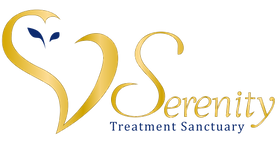
Detoxification
The first phase of rehabilitation. There are two types of addiction, mental and physical. Both types of addiction involve similar self-destructive behaviour by the consumption of an unsafe amount of substances. The key distinction between the two types is that physical addiction occurs should an individual exhibit a dependence on the substance in order for his or her cognitive, cardiovascular and/or metabolic functions to perform normally.
A potentially fatal mistake people make is the immediate and medically unsupervised removal or confiscation of a substance, causing the affected individual to experience withdrawal symptoms, many of which can be fatal if not attended to appropriately e.g. cardiac arrest, seizures. In essence, detoxification allows the individual to safely clear their body of the substance circulating in their blood, and slowly phase into the first steps of recovery.
Although substances are removed at an immediate basis upon entry into the program. The slow and guided process will allow the individual to healthily begin their recovery at a pace most suitable to their success based on their specific needs. Note, detoxification is not necessary for all persons experiencing addiction-like behaviour.
(non) 12-Step Recovery
The 12-step recovery model, initially developed to treat alcohol dependency, is a widely adopted program in North America. This program is guided and held in group sessions. Each of the steps revolve around a specific theme crucial to the mental growth of the affected individual from the first stages of dependency (their "low-point"), to the ultimate goal of reprogramming their conscious and subconscious ways of thinking, free from the grasps of their addiction.
At Serenity, we do NOT implement a religiously-oriented method of 12-Step recovery. However, our open-minded clinical staff and counsellors are eager to work with the individual and their family to incorporate faith-based teachings alongside their journey. We at Serenity are proud to say that we are a 100-percent inclusive family, closely working with a diverse set of partners throughout the city in order to best serve each of our members in the comfort of their own beliefs.
Additionally, 12-step has been adapted to treat addictions of all types including narcotics, tobacco, prescription drugs and even gambling.
Although 12-step is an important component of Serenity's personal recovery model, it only serves a small role in our program's multidimensional structure.
Counselling and Therapy
Where recovering individuals acquire useful knowledge and discover ways to manage their condition. One-on-one counselling and therapy is a key element in one's recovery process.
Substance reliance is a consequence from externally driven factors that ultimately lead to the individual abusing harmful substances, factors of which particularly affect one's mental health. As it is not uncommon that victims of addiction are completely unaware of the past experiences and trauma that play a large part in driving their behaviour, it is immensely more important to target the origin of the disorder by treating his or her mental struggles.
Mental healing is most successful when individuals routinely meet with a professional where they are given the opportunity to release and work through their internal struggles within a safe space.
Physical Therapy, Rehab & Fitness
Most individuals that have engaged in substance abuse may experience detriments to their physical health. This is due to the direct effects of particular substances e.g. hypertension and shakiness from chronic alcohol use. Or alternatively, the indirect effects from long-term abuse are typically present, which include but are not limited to muscle weakness, digestive issues and incoordination, symptoms that arise from the long-term neglect of one's health.
Physical rehabilitation requires close guidance by a certified trainer and only within the recommendations of a physician as unsupervised participation in physical activities could lead to a medical emergency.
Physical rehabilitation begins with a slow introduction to movements, stretches and exercises to regain simple functions. The individual will then gradually progress to training that involves exercises of increased difficulty while targeting specific improvements in one's physical fitness.
Overall, people in recovery are educated on the most important aspects of healthy living, particularly self-care and nutrition - both of which are severely neglected. At Serenity, guidance is provided to all members from Day 1. We see to it that at the very least, you recognize the value of a little bit of self-care.
Personal Development
Recovery from addiction is challenging; this cannot be overstated enough. Therefore, residential (inpatient) treatment is typically more successful as any external stress is only going to aggravate the use of substances.
That being said, the aim of our program, or any good rehabilitation program for that matter, is not to keep you sober and sit you down in front of a counsellor a few times a week and wait for the magic to happen. Rather, our team of coaches and occupational therapists work closely with our members to outline personal objectives unrelated to 12-step that the member will be encouraged to work on.
Now here is something unique to Serenity. Through many years of experience, our counsellors have found effective methods that incorporate personal skills development programs that aim to redirect the affected individual's energy to the progress of another task.
The sole purpose of personal coaching and skills development is to ignite a spark of wonderment within the recoverer's psyche, actuated by their own untapped potential.
